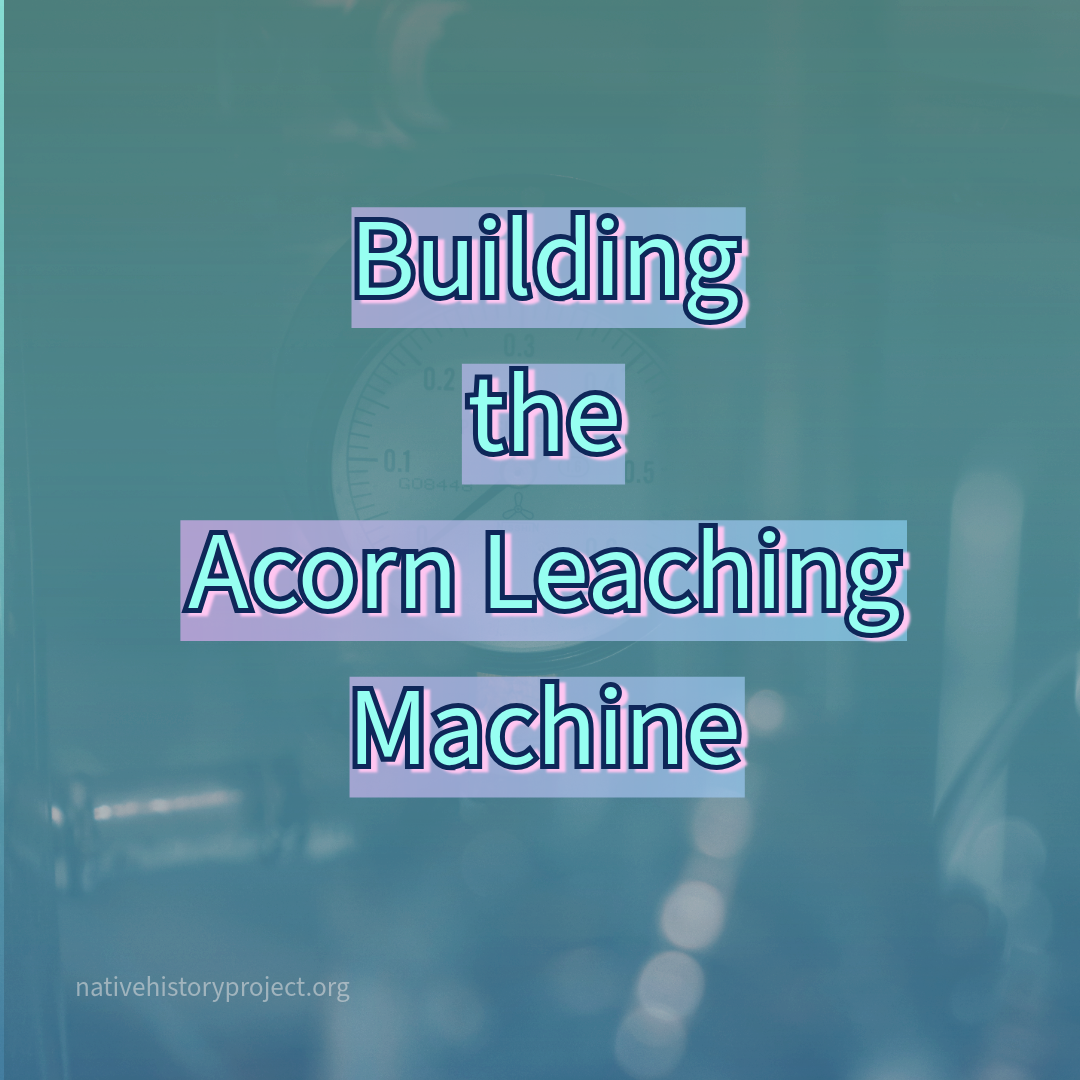
An update from the ACORNS! Project Arc
Thank you for all of your support. For coming to our events, playing with the maps on our website, volunteering for the Acorn Harvest, and for checking out our printed maps and other merch.
I am writing to you now because I want you to know that your support is appreciated, and that it has had an impact on our mission, to educate the community about local Native history through maps, advocacy, and experiential learning opportunities. Your support is helping to reopen Indigenous foodways, a tangible benefit made possible by your participation and generosity.
The journey over the past year has been exciting, humbling, and rewarding. We have made so much progress! And one of the most exciting places we’ve made progress is in the way we leach acorns at scale.
Meeting the Challenge
We faced the existential challenges presented by pollution, climate change, loss of native wildlands and animals, and a lack of fresh, free flowing water. If the traditional way of leaching acorns is using a basket in a river or stream: how can we do that when all of our water has been polluted, and diverted into culverts? The answer was to build our own river.
Proof of Concept
The first Acorn Leaching Machine was cobbled together with plastic never-used trash cans fitted with PVC piping. It connected a DIY water filtration system with hand packed filter cartridges, an elaborate acorn tray setup, and a well pump. I hand-sewed the muslin acorn sacks. The first machine ran too hot, and wasn’t terribly food safe. But it was a proof of concept; a successful first generation.
From Prototype to Food-Safe Design
The second machine, the most current design, features some very significant upgrades.
- Stainless steel, weld-less design
- Food grade, with as little plastic as possible
- Completely new cooling system
- Upgraded to full-scale, food-safe, whole-house filtration system (multi-stage)
- Housed on a mobile platform for presentations at schools and libraries
A Tangible Tribal Benefit
When complete, the flour produced by this system will go on offer to the Muwekma Ohlone Tribe of the San Francisco Bay Area (and to the wider Indigenous community) as a tangible tribal benefit to the first people of this place. For free. It will feed ceremonies, meals, and gatherings, and it will travel to classrooms, libraries, and community spaces as a mobile teaching tool. Together, we are restoring a foodway that has not existed in over three centuries, and showing that food is medicine; traditional food is medicine.
Now, we are poised to leach acorns at scale. To produce consistent, safe, traditional food. Without compromise. Your impact will be more tangible than you could ever imagine.
The Final Push
Every contribution, every hour volunteered, and every conversation shared has led to this moment. Reopening Indigenous foodways isn’t symbolic–it’s real work with tangible results. The Acorn Leaching Machine is more than equipment; it is a living example of innovation and restoration working together. It shows what can happen when we adapt ancestral knowledge to meet the challenges created by colonization and environmental change.
We’ve already come this far with community effort, a partial grant from the Alameda Public Art Commission, and your continued support. Now, we’re preparing to complete the machine, to upgrade the last of its fittings and mount it securely to the moving platform that will carry it into classrooms, libraries, and public spaces across the region.
This is the final push. Every donation, no matter the size, brings us closer to completion.
Make Your Impact Visible
For gifts of $75 or more, your name will be etched directly onto the stainless steel Acorn Leaching Machine, a visible acknowledgment of the community who helped make this restoration possible. Each name will stand for someone who chose to take action and help reopen Indigenous foodways in a tangible way.
Your continued support is helping to decolonize our diet, rebuild the relationship between people and the land, and remind our communities that food is medicine, and traditional food is medicine. This is what it means to turn gratitude into action.
With gratitude,
Gabriel Duncan
Founder, Alameda Native History Project
